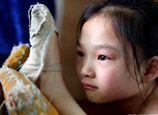
Xie noted that inflation will be a major potential problem next year. The era of cheap capital continues, and the United States, Europe, and Japan are supporting their economies through ultra-loose monetary policy. Inflationary pressures will increase considerably next year along with world economic recovery. The loose monetary policy of developed countries has a big impact on Asian capital markets. A large amount of capital has flown into Asia's stock and bond markets in pursuit of profits, but this process cannot last long. Asian bond markets have developed robustly this year, and the rate of return has dropped. Once developed countries increase their interest rates or domestic economies worsen, huge capital outflows will deliver a hard blow to Asian capital markets. The Asian countries concerned should prepare for possible risks through prudent macroeconomic policies.
Nariman Behravesh, chief economist at IHS Global Insight, said that the "high uncertainty" brought about by the U.S. "fiscal cliff," European debt crisis, and turmoil in the Middle East and North Africa still exists, and two-way fluctuations of international bulk commodity prices will continue. The situation in the Middle East and North Africa is the biggest uncertain factor for the crude oil market. Emerging economies are likely to grow faster next year, and may face greater pressure of capital inflows and currency appreciation. Most developed countries and regions are expected to adopt neutral monetary policy. The United States, eurozone, and Japan will maintain tight fiscal policy, or even tighten it to cope with debt problems.
 |














 1.8 mln to sit 2013 postgraduate admission exams
1.8 mln to sit 2013 postgraduate admission exams


![]()
